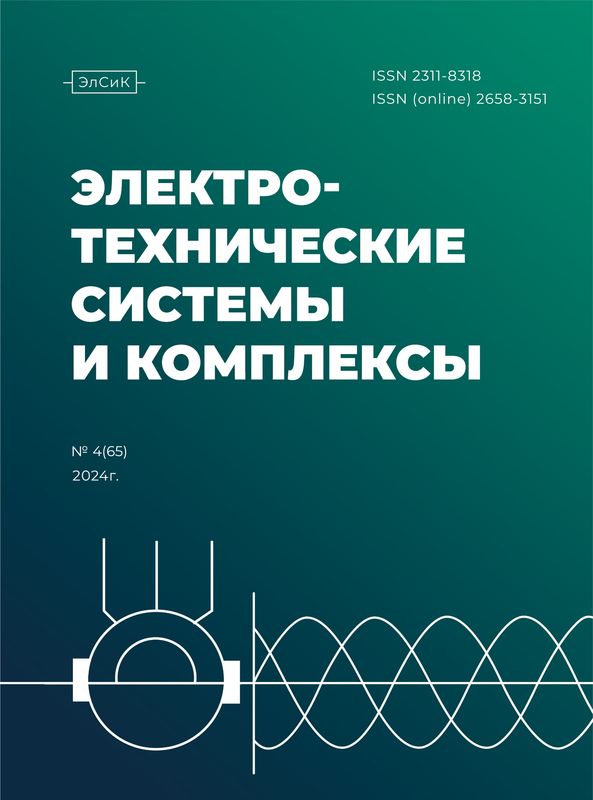Abstract
Partial shutdown of distribution networks of the Republic of Iraq due to the military conflict and annual growth of demand for electric power has caused a noticeable power shortage. Overload in the networks of the Republic of Iraq has caused an increase in voltage and power losses in the elements of distribution network, which significantly affects the main parameters of the network and indicators of power quality. Calculation of the mode in the software package RasterWin2 confirmed the voltage reduction in the nodes above the permissible values and the increase of active power losses in the elements of the distribution network. One of possible variants of the solution of the problem of reduction of voltage and power losses in the distribution network, at necessary quality of electric power, is the use of photo diesel power plants (PDPP). Additional factors determining the possibility of using the distributed generation in the form of PDPP are climatic features and presence of local hydrocarbons. For the purpose of selection of PDPP connection nodes in the distribution network of the Republic of Iraq, the task of optimization of active power losses was solved on 11 kV buses of 33/11 kV substation, and a certain combination between photovoltaic panels (PVP) and diesel power plants (DPP) was proposed. For criterion of optimality the minimum of active power losses in networks with voltage of 33 kV is chosen, which are compensated by installations of PDPP. On the basis of the optimization task solution it is proposed to install PDPP in three most typical units (10, 15, 23) with total capacity of 2000, 1500 and 1000 kW. The evaluation of the efficiency of the distribution networks of the Republic of Iraq, taking into account the use of PDPP, has confirmed the significant increase of the voltage level in the c
Keywords
Distribution networks, distributed generation in the form of photo-diesel power plants, power and voltage losses, optimization and loss minimization.
1. Mohammed A.Z.A., Vinogradov A.A. Features of the electrical distribution network of Iraq. V sb.: energetika i energo effektivnye tehnologii. Belgorod: iz-vo BGTU [In collection of scientific papers: energy and energy-efficient technologies. Belgorod: publ. house BSTU], 2012, pp. 12-16. (In Russian)
2. Sednin A.V., Nazar H., Kadam N. State and problems of the development of thermoelectric generating capacities of the power system of the Republic of Iraq. Energetika. Izvestiya vysshih uchebnyh zavedenij i energeticheskih obyedinenij SNG [Energy. News of higher educational institutions and energy associations of the CIS], 2011, no. 6, pp. 76-81. (In Russian)
3. Kazem H. A., Chaichan M. T. Status and future prospects of renewable energy in Iraq //Renewable and Sustainable Energy Reviews, 2012, no. 8 (16), pp. 6007-6012. //doi.org/10.1016/j.rser.2012.03.058
4. Al B.A.G., Yakimovich B.A., Kuvshinov V.V. Use of solar generation in the power supply system of Iraq. Energeticheskie ustanovki i tehnologii [Power plants and technologies], 2019, no. 5 (2), pp. 69-73. (In Russian)
5. Techno-economic feasibility of photovoltaic, wind, diesel and hybrid electrification systems for off-grid rural electrification in Colombia / A. H. Mamaghani, S A AEscandon, B Najafi, A Shirazi, F Rinaldi // Renewable Energy, 2016, 97, pp. 293-305. //doi.org/10.1016/j.renene.2016.05.086
6. Pashkova E.V., Haider A. Kh. The role of the oil industry in the economic and political development of Iraq. Vestnik Rossijskogo universiteta druzhby narodov [Bulletin of the Peoples' Friendship University of Russia. Series: International Relations], 2014, pp. 110-115. (In Russian)
7. Abed F. M., Al-Douri Y., Al-Shahery G. M. Y. Review on the energy and renewable energy status in Iraq: The outlooks // Renewable and Sustainable Energy Reviews, 2014, no. 39, pp. 816-827. //doi.org/10.1016/j.rser.2014.07.026
8. Dmitrienko V.N., Lukutin B.V. Solar-diesel power supply systems of the northern villages. Sovremennye problem nauki i obrazovaniya [Modern problems of science and education], 2014, no. 3, pp. 25-32. (In Russian)
9. Optimal combination of solar, wind, micro-hydro and diesel systems based on actual seasonal load profiles for a resort island in the South China Sea / M. R. B. Khan, R. Jidin, J. Pasupuleti, S.A. Shaaya // Energy, 2015, no. 82, pp. 80-97. //doi.org/10.1016/j.energy.2014.12.072
10. Adaramola M.S., Paul S.S., Oyewola O.M. Assessment of decentralized hybrid PV solar-diesel power system for applications in Northern part of Nigeria // Energy for Sustainable Development, 2014, no. 19, pp. 72-82. //doi.org/10.1016/j.esd.2013.12.007
11. Lukutin B.V., Shandarova E.B. Energojeffektivnost fotojelektrostancyj v avtonomnyh sistemah elektrosnabzheniya [Energy efficiency of photovoltaic power plants in autonomous power supply systems]. Tomsk: TPU Publishing House, 2008, 140 pp. (In Russian)
12. Bulatov B. G., Tarasenko V. V. Algorithms for intelligent control of the distribution network mode. Vestnik Yuzhno-Uralskogo gosudarstvennogo universiteta [Bulletin of the South Ural State University. Series: Energy], 2012, no. 37, pp. 18-22. (In Russian)
13. Optimal reactive power compensation in electrical distribution systems with distributed resources. Review / A. Á. Téllez, G. Lopez, I. Isaac, J.W. Gonzalez //Heliyon, 2018, no. 4. № 8, pp. 1-30.//doi.org/10.1016/j.heliyon.2018.e00746
14. Kulaev I., Kubarkov Y. Regulation of Voltage and Optimization of Power Losses in Active-Adaptive Networks // 2018 International Conference on Industrial Engineering, Applications and Manufacturing (ICIEAM), IEEE. 2018, pp. 1-4. //doi.org/10.1109/ICIEAM.2018.8728712
15. Menzeleev A. S. Calculation of the mode of the electric network by the Newton method taking into account the static characteristics of electric loads. Aktualnye problem energrtiki. Elektroenergeticheskie sistemy i seti [Actual problems of energy. Electric power systems and networks], 2019, pp. 180-183. (In Russian)
16. Features of modes of distribution electric power networks of Iraq / M.A. Averbukh, E.V. Zhilin, E.Yu. Sizganova, M.W. Abdulwahhab. Tehnika i tehnologiya: zhurnal Sibirskogo Federalnogo universiteta [Technique and Technology: Journal of the Siberian Federal University], 2019, no. 12 № 5, pp. 607-616. (In Russian)
17. Averbukh M.A., Zhilin E.V., Prokopishin D.I. Minimization of electricity losses in power supply systems of individual housing construction. Problemy regionalnoy energetiki [Problems of Regional Energy], 2018, no. 2 (37). pp. 31-37. (In Russian)
18. Vlackaya L.A., Semenova N.G. The use of genetic algorithms in the problems of optimizing the placement of compensating devices. Elektrotekhnicheskie sistemy I kompleksy [Electrotechnical systems and complexes], 2019, no. 4 (45), pp. 21-28. (In Russian)
19. Efremenko V.M., Belyaevsky R.V. Calculation of the optimal placement of compensating devices using the Lagrange multiplier method. Vestnik Kuzbasskogo gosudarstvennogo tehnicheskogo universiteta [Bulletin of Kuzbass State Technical University], 2012, no. 6 (94), pp. 138-141. (In Russian)
20. Georgilakis P. S., Hatziargyriou N. D. Optimal distributed generation placement in power distribution networks: models, methods, and future research // IEEE transactions on power systems, 2013, no. 28 (3), pp. 3420-3428. //doi.org/10.1109/TPWRS.2012.2237043.










